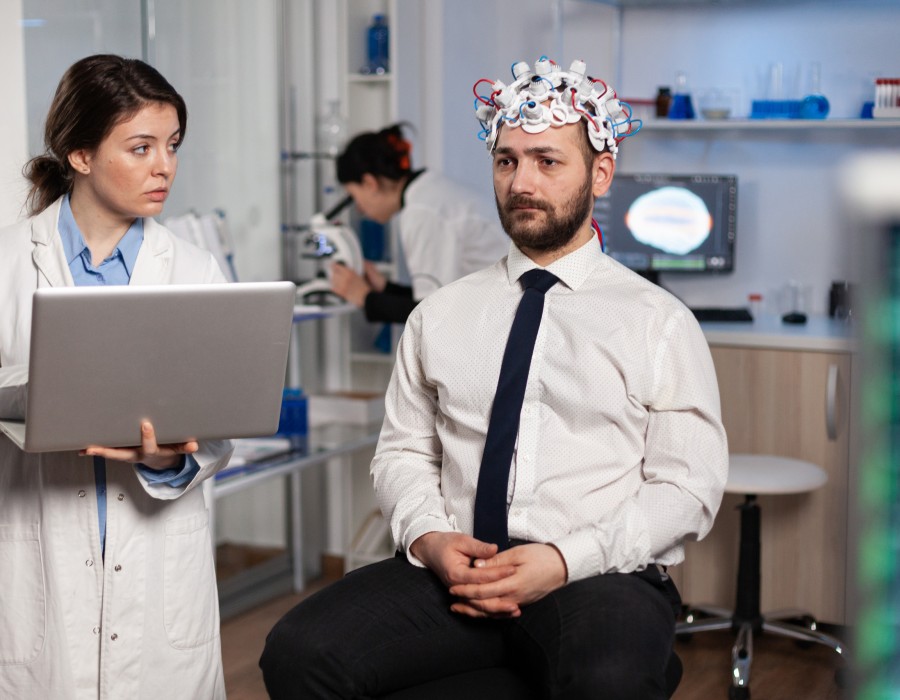Transcranial magnetic stimulation (TMS) has become an innovative approach to treating mental health disorders like anxiety, particularly for those who haven't found relief with traditional therapies. This non-invasive technique uses magnetic pulses to stimulate specific areas of the brain, promoting balanced neural activity. For those searching for TMS treatment near me, Lotus Psychiatry and Wellness in Boca Raton offers NeuroStar TMS therapy. This article explores the benefits of TMS for anxiety, as well as the pros and cons of TMS therapy and how it could offer an effective alternative to medication and therapy.
What is TMS Therapy for Anxiety?
TMS for anxiety works by targeting the prefrontal cortex, a region of the brain that influences mood and emotional regulation. For individuals struggling with anxiety, this area of the brain can become overactive, leading to excessive worry and stress. By applying magnetic pulses to these targeted regions, TMS helps to normalize neural activity, reducing symptoms of anxiety without the need for medication.
NeuroStar TMS therapy is one of the leading forms of TMS technology, FDA-approved for treating depression and now used widely for anxiety as well. NeuroStar offers a safe, structured way to deliver TMS, ensuring each session is both effective and comfortable for patients.
How Does TMS Therapy Work?
The TMS process involves placing a magnetic coil on the patient’s head, which delivers magnetic pulses to stimulate nerve cells in the targeted brain areas. These sessions are generally short, lasting between 20 and 40 minutes, and are conducted over several weeks. During this time, patients may start to notice a gradual improvement in their anxiety symptoms. Unlike other forms of treatment, TMS doesn’t require anesthesia or invasive procedures, allowing patients to return to their daily activities immediately after each session.
The Pros and Cons of TMS Therapy
Like any treatment, TMS has its advantages and limitations. Understanding these can help patients make an informed decision about whether TMS for anxiety is right for them.
Pros
- Non-Invasive: TMS is a non-surgical procedure, meaning it doesn't involve any recovery time, sedation, or anesthesia.
- Minimal Side Effects: TMS has fewer and milder side effects compared to medication. Common side effects, such as minor headaches or scalp discomfort, typically resolve quickly.
- Long-Lasting Relief: Many patients report lasting relief from their symptoms after a series of TMS sessions, making it a beneficial long-term solution.
- Convenience: Each TMS session is brief, allowing individuals to continue their normal routines without significant disruption.
Cons
- Time Commitment: TMS usually requires multiple sessions per week over a period of four to six weeks, which may be challenging for individuals with busy schedules.
- Variable Results: As with any treatment, TMS effectiveness can vary from person to person.
- Cost: While many insurance plans cover TMS, some individuals may still incur out-of-pocket expenses.
NeuroStar TMS Therapy in Boca Raton
For those searching for NeuroStar TMS therapy Boca Raton, Lotus Psychiatry and Wellness provides a supportive, personalized approach to TMS treatment. With NeuroStar’s FDA-approved technology, patients can receive effective treatment in a comfortable setting. NeuroStar TMS therapy has been shown to reduce symptoms significantly for patients with both depression and anxiety, providing a reliable path to mental wellness.
Is TMS Right for Your Anxiety?
If you're interested in TMS and looking for a TMS treatment near me, consider consulting with a specialist at Lotus Psychiatry and Wellness. The compassionate team can evaluate your mental health needs, discuss the potential benefits of TMS, and help you determine if it’s the best option for you.
Conclusion
TMS for anxiety is a promising treatment for individuals seeking relief without the side effects associated with medication. With minimal side effects, long-term benefits, and FDA-approved options like NeuroStar TMS therapy, TMS offers a valuable alternative for those who haven’t found success with other treatments. If you’re considering transcranial magnetic stimulation for anxiety, contact Lotus Psychiatry and Wellness to learn more about how TMS can support your journey to better mental health.





Comments